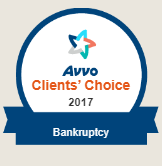The means test determines whether an individual can file for Chapter 7 bankruptcy. These guidelines compare your income minus certain expenses to the median income of other same-size households in California.
Learn more about how to apply the means test when preparing to file bankruptcy in California.
Median income threshold in California
If your household income falls below the median for California at the time of your bankruptcy filing, you can automatically qualify for Chapter 7. Currently, the state income maximum is:
- $60,360 for a single-person household
- $79,271 for a two-person household
- $88,235 for a three-person household
- $101,315 for a four-person household
The bankruptcy court will average your income over the past six months and compare it to the state median income chart.
The comprehensive means test
If your household income exceeds these limits, you may still qualify for a Chapter 7 filing. In this case, you must completely document your income and expenses for the past six months. The law allows you to deduct certain expenses before comparing your income to the state median. For example, allowable expenses include medical costs, food, clothing, transportation, and mortgage or rent payments.
These allowable expenses are exemptions. In California, individuals who file for bankruptcy can choose between the federal exemptions and the state exemptions. Exemptions also govern the assets you can keep in a bankruptcy filing. The court may divert property and income exceeding the allowable amounts to repay some of your debt.
If you do not pass the means test, you may still qualify for a Chapter 13 bankruptcy. Unlike Chapter 7, which discharges eligible debts, Chapter 13 reorganizes debts to make them more affordable. If you expect your income to decrease, you can wait a few months and apply the means test again to see if you meet the Chapter 7 criteria.
Filing a Chapter 7 bankruptcy often results in debt discharge within six months. After you file, you receive an automatic stay that prevents creditors from contacting you.



